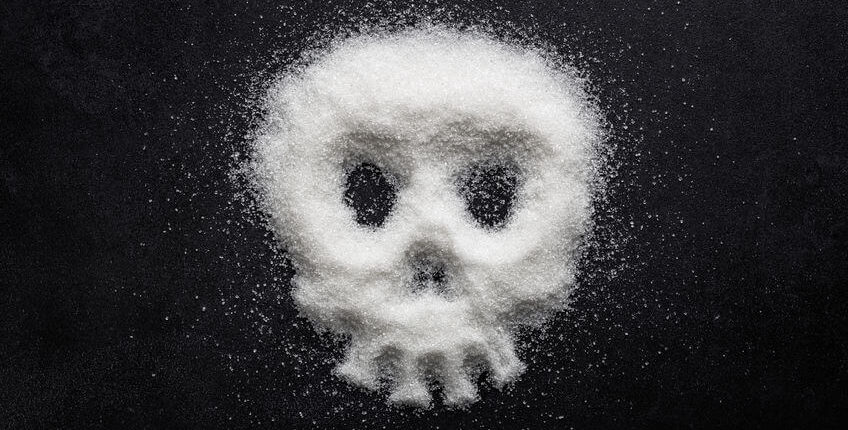While aspartame is made up of all-natural amino acids, these are rather dangerous when consumed in large quantities, and even more so when consumed persistently.
According to a 2013 study reported on Trends in Endocrinology & Metabolism
Highlights of Study:
- Similar to sugar-sweetened beverages, artificially sweetened (diet) beverages (ASB) are linked to obesity.
- ASB may increase the risk for diabetes, metabolic syndrome, and cardiovascular disease.
- ASB may increase the risk for negative outcomes by interfering with learning.
- Reductions in sweetener use, including low-calorie sweeteners, may be warranted.
The negative impact of consuming sugar-sweetened beverages on weight and other health outcomes has been increasingly recognized; therefore, many people have turned to high-intensity sweeteners like aspartame, sucralose, and saccharin as a way to reduce the risk of these consequences. However, accumulating evidence suggests that frequent consumers of these sugar substitutes may also be at increased risk of excessive weight gain, metabolic syndrome, type 2 diabetes, and cardiovascular disease. This paper discusses these findings and considers the hypothesis that consuming sweet-tasting but noncaloric or reduced-calorie food and beverages interferes with learned responses that normally contribute to glucose and energy homeostasis. Because of this interference, frequent consumption of high-intensity sweeteners may have the counterintuitive effect of inducing metabolic derangements.
Dubious Approval
To its credit, the U.S. Food and Drug Administration (FDA) turned down G.D. Searle’s application for aspartame’s approval from 1966 through 1981.
Reports indicate that approval of Aspartame was forced through the FDA as an additive since used in over 6,000 foods at the insistence of Searle’s CEO, Donald Rumsfeld in 1981.
That is in spite of the fact that the Pentagon lists Aspartame as a biochemical warfare agent.
Since Aspartame was approved by the FDA, numerous physicians as well as many government and private petitions have been filed with the agency asking for the rescinding of aspartame’s apparently arbitrary acceptance.
Consumer complaints regarding aspartame to the FDA have identified a minimum of 92 alleged symptoms from ingesting aspartame.
There have been over 10,000 official complaints to the FDA about aspartame reactions before they stopped posting responses to the subject in question.
These have all been routinely ignored and responded to with industry assurance about how many industry financed “tests” aspartame has been through, all of which contend to indicate “aspartame to be safe.”
Consider the fact that the FDA itself admits to being at least a decade behind the advance of the sciences they regulate.
To counter negative perceptions this sugar substitute has been repackaged and relabeled under a variety of names over time.
In turn such deceptive practices make most all sugar substitutes suspect, as they should be, for little is known about the chemistry behind such additives.
Messing with the System
 Bearing in mind that whenever a chemical attempts to dupe the basic mechanisms of biology there is likely to be a resulting imbalance of natural regulatory systems.
Bearing in mind that whenever a chemical attempts to dupe the basic mechanisms of biology there is likely to be a resulting imbalance of natural regulatory systems.
As is the case here, when aspartame enters a person’s system, it increases dopamine levels in the brain, which can in turn lead to symptoms of depression by disrupting the brain’s serotonin/dopamine balance.
Aspartame contains 4 calories per gram (g), similar to sugar. It is, however, around 200 times sweeter than sugar.
This multiple means only a tiny amount of aspartame is needed to sweeten foods and drinks. It is widely thought to help promote weight loss for this reason.
however, medical reviews suggest artificial sweeteners may increase appetite by disrupting the signaling process that usually occurs when foods with more calories are eaten.
Sweet tastes typically signal to the body that food is entering the gut. The body then expects to receive calories and signals when eating should stop by making a person feel full or satiated.
The same sweet taste is experienced when artificial sweeteners are consumed, but the body receives far fewer calories than it might otherwise expect to gain.
The most common symptoms of aspartame overdose include:
- Headaches
- Mood alterations
- Gastrointestinal symptoms
- Obesity
- Blurred vision
- Skin rashes
- Epilepsy
- Multiple sclerosis
- Death
Side effects of Aspartame may mimic the following conditions:
- Attention deficit disorder
- Alzheimer’s disease
- Panic disorder
- Arthritis
- Chronic fatigue syndrome
- Lupus
- Lyme disease
- Multiple sclerosis
- Parkinson’s disease
- Fibromyalgia
- Lymphoma
- Multiple chemical sensitivity
(just to name a few).
Dr. Joseph Mercola is a family practitioner in Illinois.
He completed medical school at the Chicago College of Osteopathic Medicine in 1982.
In an article for The Huffington Post Dr. Joseph Mercola expresses the dangers of “America’s Deadliest Sweetener”.
He warns of the dangers of diet sodas and low-calorie foods:
Preventing further neurodengenerative and carcinogenic damage to hundreds of millions of Americans, who have no other government entity to trust and depend on than the United State Food and drug Administration!
Indicated is a regulatory failure of epic proportions.
This should be sufficient evidence to warrant rescinding FDA approval for Aspartame.
A situation similar to when in 1969 President Richard Nixon similarly ordered the FDA to take away the approval for another group of carcinogens, cyclamates, which occurred very quickly.
Contrary to finding in the scientific community:
The following authorities consider aspartame safe:
- World Health Organization
- United Nations Food and Agriculture Organization
- American Heart Association
- American Dietetic Association
- European Food Safety Authority (EFSA)
However, many of these organizations recommend only very small amounts, generally less than can be found in a single serving, and they likely assume sporadic and not habitual of the substance. Which would be counter-intuitive to say the least. By no means should their support of the product be construed as safe for all or in all amounts or duration.
The most important information to gain from all of this so far, is research suggests that the digestive system takes queues from the taste of things and begins to enact digestive processes accordingly. Duping the system is one of the easiest ways to throw this delicate system out of sync temporarily, if not permanently.
What we can do to best protect ourselves is regulate ourselves. Avoid Aspartame, and other artificial sweeteners along with low fat alternatives. Treat your body right, and don’t think for a minute it can be fooled without consequences.


